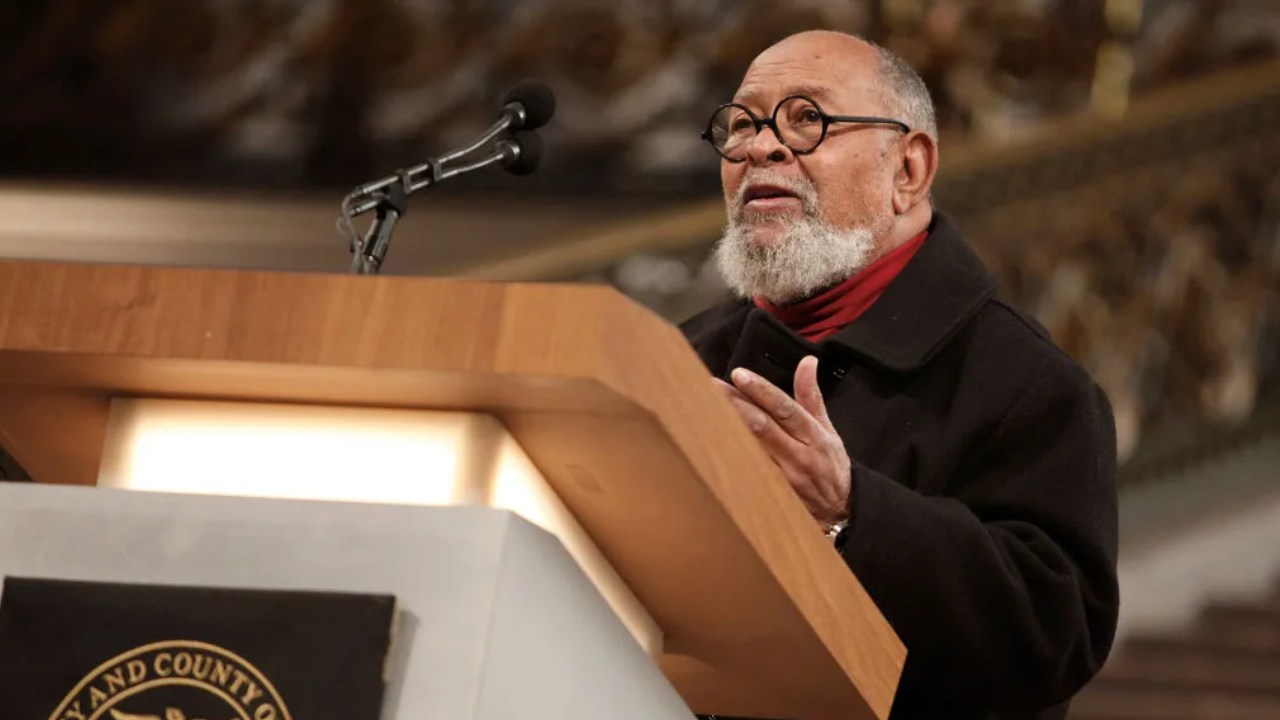Closing arguments in the Johannes Mehserle trial will continue Friday in a Los Angeles courtroom. They started Thursday but the defense did not finish its closing. The prosecution will state their rebuttal then the judge will instruct the jury and hand the case over to them to decide the fate of Johannes Mehserle.
Lawyers on both sides of the case have already spent several hours dissecting the former BART officer's every moment the night Mehserle shot and killed unarmed BART passenger Oscar Grant III.
Last week Mehserle said on the stand that he mistakenly pulled his handgun instead of his Taser stun gun. Prosecutors have argued Mehserle intended to kill Grant, and that Mehserle used his handgun because officers were losing control of the situation.
There are a series of cell phone videos that have been played frame by frame in the three weeks of the trial. Those will take center stage once again Thursday as the lawyers try to convince the jurors that what they want them to see is what really happened early in the morning January 1, 2009.
Prosecutor David Stein was first up. He told the jury "the defendant decided to punish. The defendent decided to be little. The defendant decided to mistreat Mr Gant. It not only resulted in chaos and distrust, but resulted in the death of an innocent person."
Stein then pointed at Mehserle and said: "And for that he must be held liable."
Stein said Mehserle chose to ignore everything he was taught as an officer and let his emotion dictate his actions and let his aggression dictate his conduct. He said fellow officer Tony Pirone set the tone and created an "out of control" environment. He said he thinks maybe Pirone should have also been charged and should be sitting next to Mehserle on trial.
Stein showed jury a photo of Grant on his stomach with hands behind back and said "It can never be lawful to shoot an unarmed man when that man is faced down in the process of putting his arms behind his back. That can never be lawful in any set of circumstances."
The last thing Stein told jury.
"When you look at all the evidence, what it will show is an intentional killing without any justification. And under the law that's second degree murder. Ladies and gentlemen, the people of the State of California are asking you convict the defendent of that crime."
Next up was Michael Rains.
Local
Rains was both theatrical and forceful in his closing telling the jury, "They better be prepared to prove it up" when he talked about the prosecution calling Mehserle a murderer. He also refered to the case as epic and warned jurors that this is "not a forum to address social injustice or racial injustice. That is not why you're here. That has no role in your decision." He said clearly that Oscar Grant should not have died, adding he should not have been shot. But he said those two facts do not mean that someone needs to pay.
He said just because there are several charges to choose from a "grab bag" doesn't mean the jury needs to convict Mehserle.
"The shooting was an accident. Mr Mehserle is entitled to an aquittal on that basis alone. He made a decision to draw and fire a taser. A reasonable decision. It did not go as he wanted. It did not go as he planned. He did what a reasonable police officer would do. He fired his taser."
Rains also brought of officer Pirone in his closing. He said the DA's case was really based on the People vs Anthony Pirone; that he's trying to smear Mesherle with Pirone. Pirone, who has been described by some onlookers as being aggressive toward Grant and his friends, was fired from the transit agency in April. He is appealing the decision and doesn't face criminal charges.
Rains said that the prosecutor want to get Mehserls for Pirone's conduct and racial slurs. "It is shameful conduct by Tony Pirone," shouted Rains. "They want to smear Mehserle with that."
He said on the other hand that his client wasn't an intimidating figure that night and did not punish, misreat or belittle Grant.
Rains will conclude his argument to the jury Friday morning.
On Wednesday Judge Robert Perry made several key rulings that shaped the conclusion of the trial.
First, he threw out the charges of first degree murder. The jury will be able to consider murder charges during deliberations, but only in the second degree.
Perry said the shooting of Oscar Grant happened "in a manner suggesting an absence of premeditation." He said evidence is "clearly insufficient to support a first degree murder charge, but could reasonably support second degree murder."
Mehserle has pleaded not guilty to murdering Grant on New Year's Day 2009.
With Perry throwing out the first degree murder charge, the jurors have four options:
- second degree murder
- voluntary manslaughter
- involuntary manslaughter
- acquittal
Grant's family said they were disappointed by the judge's decision, but knew it was possible.
The difference between a verdict of first degree murder and second degree murder is in sentencing. Second degree is 40 years to life. First degree is 50 years to life in prison.
So deliberations will began sometime Friday at the earliest. A court spokesman has said court may stay open until 7 p.m. if necessary Friday if they determine progress is being made. In a surprise move, a court public information officer said if the verdict comes back late Friday, they may hold its release until Saturday morning.
We also learned Wednesday that there is a juror on the panel who leaves on vacation next Wednesday. Perry said in court, if a verdict is not met by Tuesday at the close of business, the panel will have to start deliberations over with an alternate juror come July 7.
The trial is being held in Los Angeles but police, business owners and regular folks in Oakland are preparing for possible trouble once the verdict is reached. Late last week, Oakland city leaders sent out a few tips for people to keep their properties and vehicles safe, in case of post-verdict protests that could become violent.



